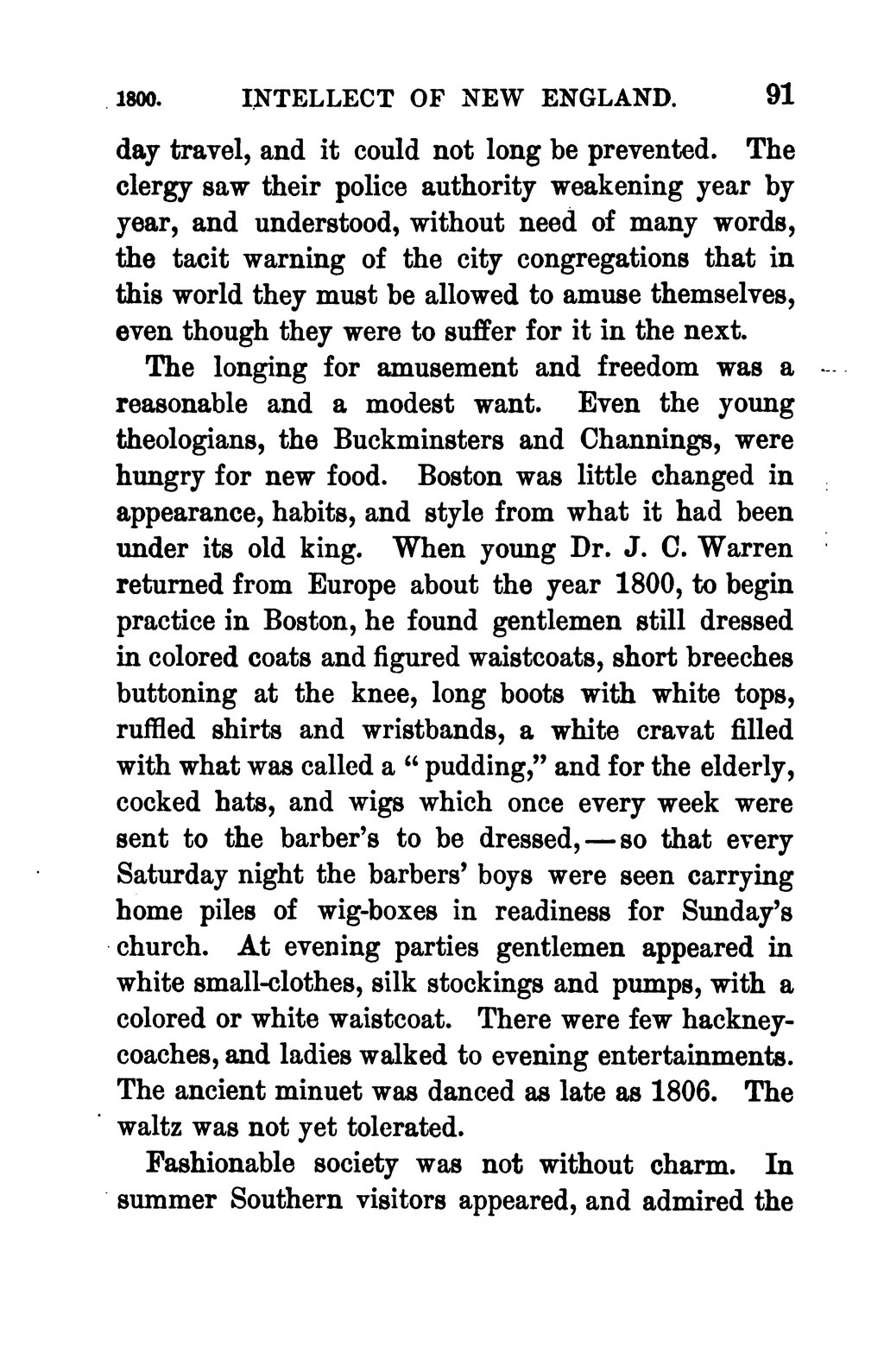day travel, and it could not long be prevented. The clergy saw their police authority weakening year by year, and understood, without need of many words, the tacit warning of the city congregations that in this world they must be allowed to amuse themselves, even though they were to suffer for it in the next.
The longing for amusement and freedom was a reasonable and a modest want. Even the young theologians, the Buckminsters and Channings, were hungry for new food. Boston was little changed in appearance, habits, and style from what it had been under its old king. When young Dr. J. C. Warren returned from Europe about the year 1800, to begin practice in Boston, he found gentlemen still dressed in colored coats and figured waistcoats, short breeches buttoning at the knee, long boots with white tops, ruffled shirts and wristbands, a white cravat filled with what was called a "pudding," and for the elderly, cocked hats, and wigs which once every week were sent to the barber's to be dressed,—so that every Saturday night the barbers' boys were seen carrying home piles of wig-boxes in readiness for Sunday's church. At evening parties gentlemen appeared in white small-clothes, silk stockings and pumps, with a colored or white waistcoat. There were few hackney-coaches, and ladies walked to evening entertainments. The ancient minuet was danced as late as 1806. The waltz was not yet tolerated.
Fashionable society was not without charm. In summer Southern visitors appeared, and admired the
